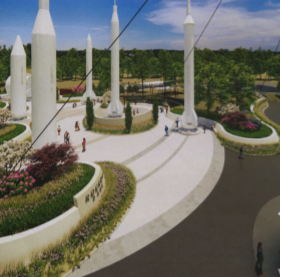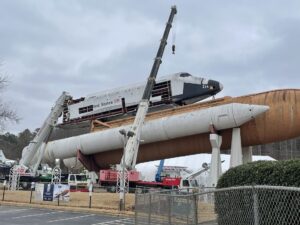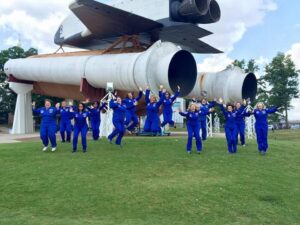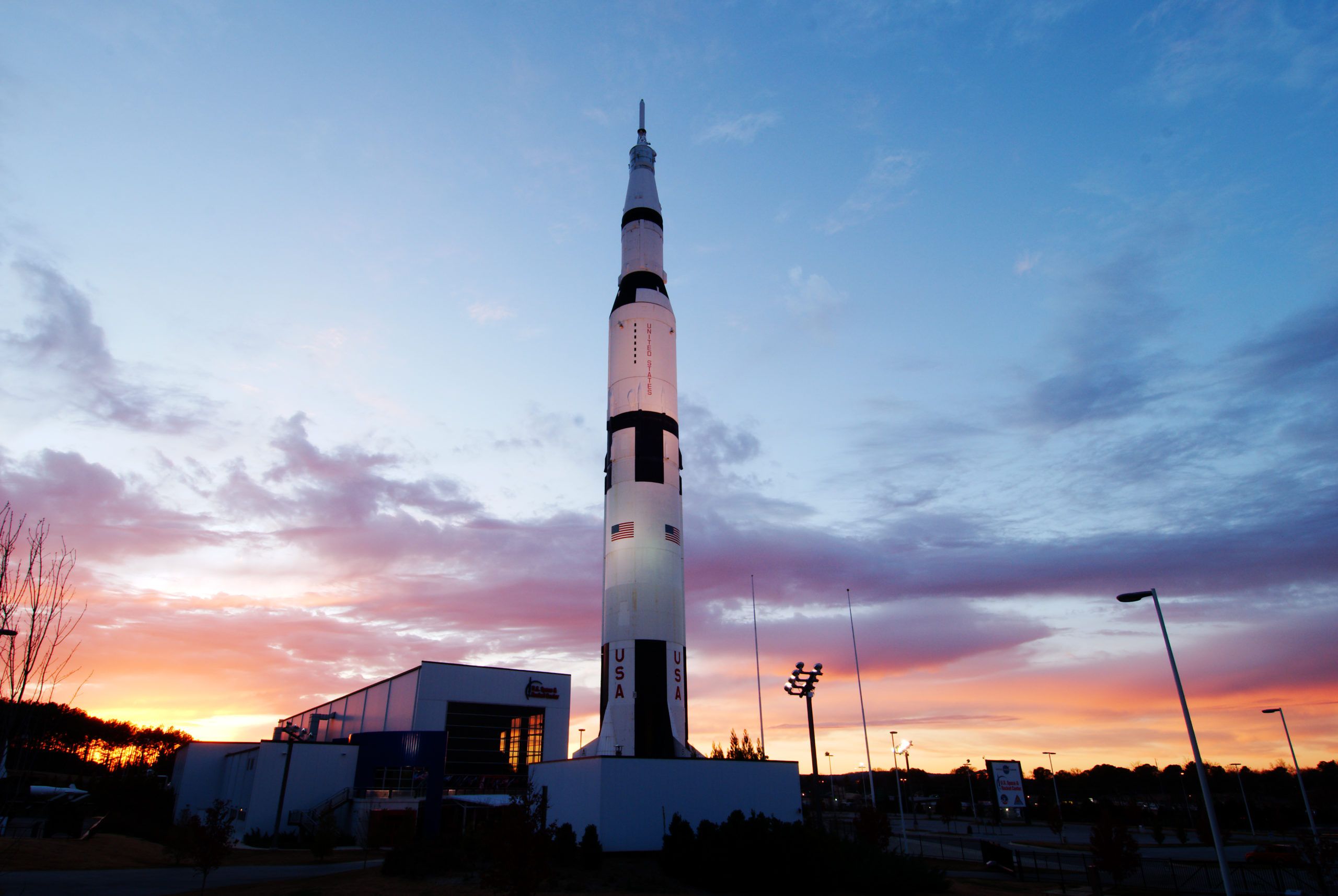What a difference you made in a year! In 2020, the U.S. Space & Rocket Center® was in danger of closing due to the pandemic. Thanks to more than 9,000 donors in all 50 states and 38 countries, the Center is open and recovering from the near financial disaster.
Thanks to our donors, in 2022 the Center is poised for launch to:
· Construct a state-of-the-art camp facility,
· Re-mount the rockets that define America’s space legacy,
· Restore the Space Shuttle Pathfinder, the first test space vehicle,
· Build an endowment for the Rocket Center and its educational programs.
Rocket Park
Preserving green space in the state’s fastest growing metropolitan area is a priority. The Rocket Center vision for the revitalized campus includes more grass, trees and natural plantings in Rocket Park where five historic rockets will be re-mounted, a section of the Space Launch System (SLS) Pathfinder displayed, and an amphitheater will become a gathering place, as well as an outdoor classroom. This oasis will be a place for the community and for visitors from around the world to relax, learn, reflect and play.

Fred Luddy, founder of ServiceNow, a cloud computing company, donated $500,000 to restore the five historic rockets. An additional $5 million is needed to re-mount the rockets and to implement the park landscaping plan designed by architectural firm Matheny Goldmon.
Once the initial phase of the Rocket Park renovation is complete, a second phase is planned to include updating the military artifact exhibits and expanding a simulations area at the western end of the park. These simulations not only provide exciting thrills but also create experiential teaching moments for making concepts of gravity and centripetal force real. This phase will also include recasting the lunar crater to showcase the Artemis Program and the upcoming American moon landings.
Space Shuttle Pathfinder
The Space Shuttle Pathfinder is in the process of being repaired, and visitors and the community want the iconic orbiter back in Huntsville’s skyscape. This Space Shuttle exhibit stems from a collaboration with Marshall Space Flight Center, which loaned the Center artifacts including the historic shuttle orbiter, the main engines, the external tank, and solid rocket boosters (SRBs). It is especially important to feature this exhibit in this community as Marshall Space Flight Center was responsible for all propulsion in the Space Shuttle Program.

A critical test article in the 30-year space shuttle program, Space Shuttle Pathfinder was developed before the shuttle orbiters were complete and helped NASA learn how to safely maneuver expensive space craft once they were ready to fly. After testing at Marshall Space Flight Center and Kennedy Space Center was complete, Space Shuttle Pathfinder was retired and acquired by the America-Japan Society. The group modified the test article to more closely resemble a functioning shuttle for display at the “Great Space Shuttle Exhibition” in Tokyo. Once back in America, Space Shuttle Pathfinder came to the Rocket Center in 1989 where it was mounted with two prototype SRBs and an external fuel tank.

After more than 30 years of exposure to the elements, Space Shuttle Pathfinder needed significant repairs. The Rocket Center received a Save America’s Treasures grant that enabled us to begin work last winter. The orbital vehicle was separated from the fully-stacked position to remove the fiberglass exterior and crumbling plywood, which were endangering the external tank. An inspection of the frame revealed only minor corrosion that will be remedied during restoration, and examination of the concrete supports for the external tank and solid rocket boosters proved those structures are sound. The Rocket Center is exploring several options for recreating an orbiter shell using modern 3D printing technologies, high-fidelity manufactured solutions and innovative display options for reintegrating the stack. The foam on the external tank is holding water but the tank underneath appears to be sound, and workers are currently testing samples to determine the best method for restoration. Total cost for the project is estimated at $6 million.
To donate, visit rocketcenterfoundation.org/pathfinder/


